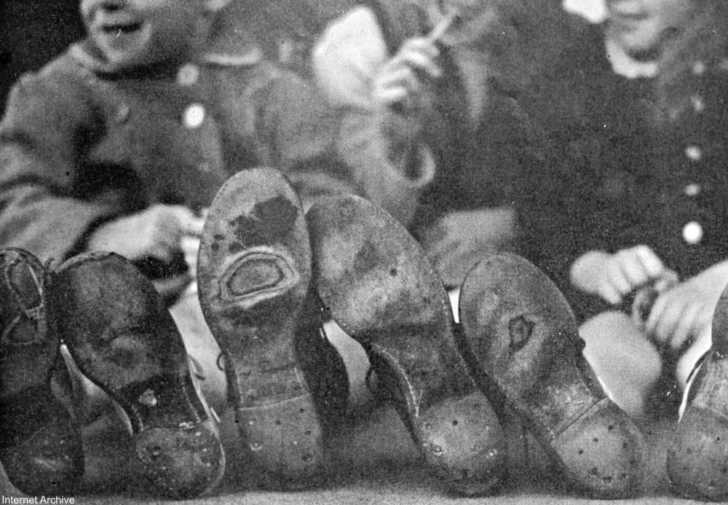While there are some German names which have been changed, altered, or lost over time, many are still quite recognizable if you know the meaning of a few German words. German surnames describe the looks, professions, or place/ patriarch of a family. The names that your ancestors brought with them can say a lot about where you came from and what job your family was known for centuries ago!

Physical Descriptors
Some German surnames come from physical descriptions that your ancestors had, either family traits that many family members all shared or distinctive traits of the patriarch. These traits would have been one of the family’s hallmarks and thus they became known by them.
Braun = brown (as in brown hair)
Gross = big
Kahler = bald
Klein = small
Krause = curly
Schwartzkopf = black haired
Weiss = white (as is pale skin or hair)

Patronymic Names
Many German names use “sen/ son/ sohn” to denote that someone is a descendant of a patriarch. Other times “s” on the end of a given name would serve the same purpose and compose a new surname. Some given names were used as surnames with little or no change in the spelling, such as Buchard or Fritz.

Mendelsohn
Meyerson
Robertson
“In” was sometimes added as an alternate suffix to denote a female of the family line.
Atkins
Harkin
Meyerin

Names of Professions
Many German surnames are derived either from archaic professions or place names. If you have one of the names below, or a variant thereof, you probably had ancestors in one of these professions. The suffixes “er” or “man” often go along with a professional surname.

BAUER = FARMER
BECKER = BAKER
HAUER = BUTCHER
HOOVER = LANDOWNER (HUBER AND HUEBER ARE VARIANTS ON THIS NAME)
JAEGER = HUNTER
METZGER = BUTCHER
MULLER = MILLER
SCHULTZ = POLICEMAN
SCHAFER = SHEPHERD
SCHMIDT = SMITH (AS IN BLACKSMITH)
SCHNEIDER = TAILOR
SCHUMACHER = COBBLER
WAGNER = WAINWRIGHT (OR WAGONEER)
WEBER = WEAVER
ZIMMERMAN = CARPENTER

Names of Places
Many German surnames are based on place descriptors or place names which refer directly to specific landmarks, like Schwarzenegger, meaning “of the village Schwarzenegg.”
BERGER = MOUNTAIN
BACH/BECK = STREAM
BUSCH = SHRUB
STEIN = ROCK

German names can also combine these more generic place descriptors to describe unique places.
BECKENBAUER = FARMER WHO LIVES BY A STREAM
MELSBACH = THE STREAM NEAR A MILL
And, if you ever think your German last name is hard to spell or pronounce, just be thankful that you don’t have this man’s last name, which means “the Otto family near the Gentschen field” and is a whopping 24 letters long. Even in Germany, Mr. Ottovordemgentschenfelde says his name is a clerical nightmare.
Source: dustyoldthing.com


